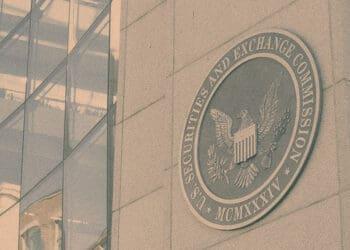The SEC over the past few years has dramatically ramped up its fight against so-called toxic lenders: convertible note purchasers who gobble up and then dump stock in small-cap companies, turning tidy profits along the way. Greenspoon Marder’s Howard Mulligan explores recent enforcement trends and sizes up the odds against these toxic lenders.
Since early 2020, the SEC has been investigating purchasers of convertible notes of issuers trading on OTC Markets Group and has initiated several enforcement actions against these noteholders for violations of federal securities laws, particularly failure to register as a “dealer,” as is required by the Securities and Exchange Act of 1934, as amended.
These actions have resulted in substantial civil fines, disgorgement procedures, suspensions as penny stock dealers and cancellations of the underlying convertible notes. Inspired by these SEC actions, issuers have begun to proactively commence lawsuits to rescind these transactions. In response, courts have issued equitable orders returning the illicitly issued shares to the issuer or, alternatively, ruling that the issuer is to receive the dollar value of such shares.
This article provides an overview of the various SEC actions, the evolution of such actions and some of the counteroffensive actions that have been asserted by issuers.
Convertible notes
A convertible note is a debt instrument that converts into equity upon the occurrence of negotiated trigger events. In the context of conventional seed financing of a privately traded issuer, the debt typically automatically converts into equity upon the closing of an initial round of financing.
In effect, by purchasing notes in a qualifying private placement, investors are in the position of having extended a loan to a startup; and then, rather than receiving a return on their investment with interest, the investors receive equity, based on a formula that is set at a fixed price.
Here, we will not address these more common privately placed securities. Rather, our focus is on financings of issuers that trade on OTC Markets Group, where the conversion ratio, which determines the number of shares issued upon the conversion, is instead based on fluctuating market prices. Further, holders are enabled to acquire shares at a steep discount and then turn around and speedily sell their newly issued shares in the public market at a tremendous profit.
Because of the inherent abuses and the deleterious impact thrust upon struggling issuers, this financing method has come under intense scrutiny by the SEC, and such convertible noteholders have been branded with the moniker of “toxic lenders.”
P2P Lending: Risks and Business Models
Peer-to-Peer (P2P) lending is a relatively recent financial innovation that has taken the lending market by storm and fueled financial inclusion. Tata Consultancy Services’ Sasidharan Chandran discusses P2P business models, associated risks and implications of the crowdfunding industry on the traditional banking setup.
Read moreDetailsHow ‘toxic’ lenders fall within the SEC ‘dealer’ definition
The Exchange Act gives the SEC the power to “register, regulate, and oversee brokerage firms, transfer agents, and clearing agencies as well as the nation’s securities and self-regulatory organizations (SROs). Under Section 15 of the Exchange Act, most brokers and dealers must register with the SEC and join an SRO in order to remain compliant. Section 3(a)(5) of the Exchange Act defines a dealer as “engaged in the business of buying and selling securities for their own account” and provides that those who purchase and sell securities for their own accounts but not as part of a regular business will fall within the “trader exception” and thus, will not be subject to registration.
Recently, the SEC attempted to demystify what constitutes a dealer, by expanding the definition to encompass those engaged “in a routine pattern of buying and selling securities that has the effect of providing liquidity to other market participants.”
‘Toxic’ lenders
By purchasing convertible notes from publicly traded issuers and converting the notes into the company’s stock, based on a conversion ratio correlated to fluctuating market prices, these investors have become insulated from the negative impact of declines in pricing.
Commonly, note purchase agreements permit conversion of common stock at a discount to market value at the time of conversion, providing the holder with the opportunity to immediately dump the shares into the public market at a substantial profit.
“Toxic lenders” will often pursue an aggressive litigation strategy. With their go-to law firms on speed dial, they will methodically initiate lawsuits against small-cap issuers. One component of the litigation playbook is to seek to enforce exuberant default rate interest provisions, which, coupled with provisions providing for conversion of shares at a steep discount, often impose penalty interest at usurious rates in excess of 50%.
Another tactic involves cherry picking the lowest point of the issuer’s trading range for the relevant period as a marker for the precise time that the holder “intended” to convert, thereby calculating “damages” asserted in their complaints at an extravagant rate.
Recent SEC enforcement actions against ‘toxic’ lenders
Some have argued that “toxic lenders” provide an invaluable source of liquidity to cash-starved companies and should not be required to not register as dealers because they do not have any direct interactions with the investing public or otherwise engage in traditional “dealer” activities. But the SEC insists that these investors run afoul of dealer registration requirements, and since 2020, the agency has initiated and continues to initiate numerous enforcement actions asserting that the holders are illicitly acting as unregistered “dealers.”
In SEC v. Almagarby, decided in August 2020, the court considered whether defendants that purchased “aged debt” from issuers’ creditors, converted the aged debt into shares at substantial discounts and then profitability sold the shares, fell within the “dealer” definition. Defendants asserted that they qualified for the “trader exception” and were not required to register. But, noting that “the company’s business model was based entirely on the purchase and sale of securities,” the court held that the company was a dealer.
In March 2022, a Florida district court dealt with a defendant that purchased convertible notes of over 100 microcap issuers, converted the notes into shares of stock at massive discounts and then dumped over 17.5 billion shares into the public market, generating over $21.5 million in profits. The court held that the defendant’s trading activity and business operations demonstrated that the company was a dealer. The court noted that, through a number of underhanded methods, the defendant falsely represented itself as prepared to buy and sell convertible securities on a continuous basis.
In August 2022, the SEC initiated an action for failure to register and then entered into a settlement with a noteholder that, from 2016-2020, purchased approximately 250 convertible notes and profitability sold the converted shares. In the settlement, the defendants agreed to (1) pay disgorgement and prejudgment interest of $8,390,601.27, (2) the entry of a civil penalty of $810,307 and (3) a five-year suspension from acting as a penny-stock dealers.
Two recent actions demonstrate the extent to which the SEC is becoming more creative and nuanced in enforcement against unregistered dealers:
In June, the SEC commenced an unregistered dealer action against Auctus Fund Management, a fund that between 2013 and 2021, purchased discounted convertible notes of over 150 issuers and entered into prearranged “securities purchase agreements” to profitably dump their newly issued shares.
In another action initiated against Typenex Co-Investment and related parties, the SEC asserted that between 2015 and 2020, the defendants purchased over 240 convertible notes, generating more than $61 million in profits. In support of its allegations, the SEC asserted that defendants (1) operated a public website that falsely claimed that the defendants ran businesses involved in PIPE (private investment in public equity) transactions to fund their purchases; (2) directly solicited, or retained third party finders to solicit, small-cap issuers; and (3) were selling for their own accounts and not as part of a regular business and did not qualify for the trader exception. The ultimate outcomes of these two actions may very well define the SEC’s legacy in the era of vigorous enforcement actions against toxic lenders.
The issuers strike back
In the wake of the SEC’s enforcement actions, many so-called toxic lenders have been coming to terms with the likelihood that it is only a matter of time before the SEC comes knocking at their doors. However, rather than compelling holders to take less toxic actions, the impending threat of SEC action has led many convertible noteholders to become more aggressive than ever in attempting to settle outstanding notes as well as in asserting default and initiating legal actions. Like the Axis powers on the brink of defeat near the end of World War II, beleaguered toxic lenders have been assiduously attempting to enforce the terms of their unlawful contracts, with the intent of aggregating as much cash as possible to fund litigation reserves to finance their defense against future SEC actions.
In many cases, the onslaught of SEC enforcement actions has invigorated small-cap companies to more forcefully assert their rights. Issuers that are parties to potentially illicit financings should conduct assessments of all relevant transaction documents. Then, based on such review, rather than passively waiting for their toxic lenders to initiate suit, such issuers should contemplate proactively initiating actions for recission of such documents and/or for damages.
Alternatively, such issuers should consider reaching out to retreating holders, perhaps demoralized by the SEC’s actions (and wary of potential issuer preemptive actions), so as to negotiate favorable debt settlements.
Courts have been generally sympathetic to such actions and have (i) granted claims for damages based on usury under state law, (ii) issued equitable orders returning the illicitly issued shares to the issuer, or alternatively, (iii) ruled that the issuer is to receive the dollar value of such shares. Although the law is currently gestating, if these civil actions continue to result in outcomes similar to the SEC enforcement actions, toxic lenders might be facing a dark future.
For example, an issuer successfully demonstrated that its toxic lender, Adar Bays, was in violation of criminal usury laws. The court ruled that criminally usurious contracts are void ab initio and completely invalidated the subject convertible note transaction. The court also ruled that provisions enabling holders to convert outstanding note balances to shares of stock at a discount should be treated as interest and should be factored into the calculation of claims based on usury law. In preemptively asserting a usury action, not only was the issuer able to surmount a credible “take the fight to the predator” action, but did so successfully!
Another microcap issuer, VNUE, filed a lawsuit against Power Up Lending Group seeking to rescind multiple convertible note transactions, based on its actions as an unregistered “dealer” in violation of the Exchange Act. VNUE asserted that, from June 2015 through September 2021, Power Up converted and dumped more than 5.2 billion shares of stock, producing over $10 million in ill-gotten profits. The ultimate conclusion of VNUE’s preemptive action will speak volumes as to whether the abuses that have been perpetuated by toxic lenders will be curtailed by civil rights of action.
Conclusion
For a considerable period of time, toxic lenders bullied small-cap issuers, reaping enormous profits in the process. Like any other bully, holders of convertible notes will act out their aggressive impulses until the time at which they are punched in the face.
In that regard, the SEC’s onslaught of enforcement actions against these convertible noteholders might amount to a game changer for long-suffering issuers. Invigorated by the SEC’s success, issuers are no longer sitting back waiting to be sued but are launching preemptive actions against toxic lenders asserting many of the same claims, coupled with creative usury arguments, claims for equitable relief as well as actions seeking compensation for damages incurred.




 Howard Mulligan is a partner in the corporate and business practice group at Greenspoon Marder in New York. He focuses his practice on the intersecting disciplines of corporate law, mergers and acquisitions, structured finance, fund formation, commercial real estate, securities law, capital markets and business restructurings.
Howard Mulligan is a partner in the corporate and business practice group at Greenspoon Marder in New York. He focuses his practice on the intersecting disciplines of corporate law, mergers and acquisitions, structured finance, fund formation, commercial real estate, securities law, capital markets and business restructurings. 







